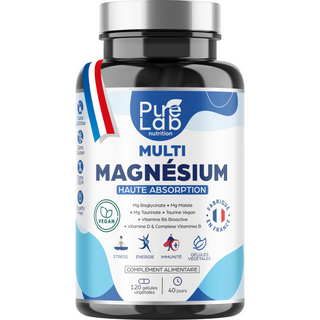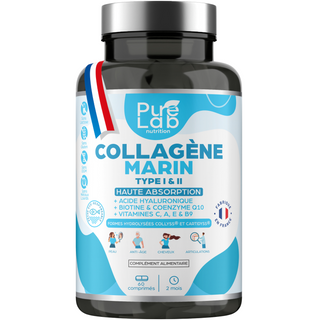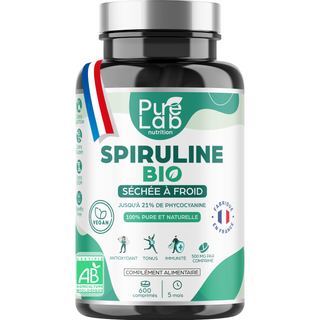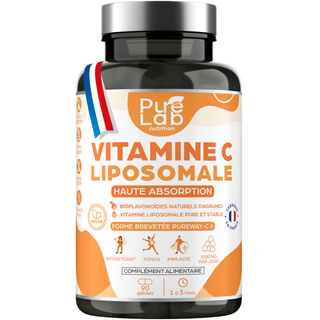For decades, vitamin C has been touted as the ultimate cold-fighting weapon. At the first sign of a runny nose or scratchy throat, many people reach for vitamin C supplements in hopes of shortening their illness 🍊.
But what does science really say about this popular belief?
The common cold: a tenacious enemy 😷
The common cold remains one of the most common infections in humans. This viral infection affects the upper respiratory tract and can be caused by more than 200 different viruses, primarily rhinoviruses.
Contrary to popular belief, it is not the cold that makes us sick, but rather viral transmission facilitated by our winter habits: confined spaces, close contact and a relative drop in our immune vigilance.
The origin of the vitamin C myth 📚
The popularization of vitamin C as a cold remedy has its roots in the work of chemist Linus Pauling in the 1970s. His research, although controversial, had a profound impact on the collective imagination and gave rise to a persistent belief.
This water-soluble vitamin, essential for many biological functions, was thus propelled to the rank of super-remedy, a status it still retains today in the minds of many.
What scientific research reveals 🔬
Cold prevention: mixed results 📊
Rigorous scientific studies conducted on large populations show that regular vitamin C supplementation does not significantly reduce the incidence of the common cold in the general population.
However, a notable exception is those under intense physical stress: elite athletes, workers exposed to extreme cold, or military personnel in training. For these specific groups, vitamin C appears to offer moderate protection against respiratory infections.
Impact on duration and intensity 🕐
If prevention isn't effective, what about symptom reduction? Evidence suggests that regular supplementation may slightly reduce the duration of the common cold.
This reduction remains modest: around 10% reduction in duration in adults, or one less day per week of illness. In children, this effect seems slightly more marked.
Curative treatment: the illusion of effectiveness ❌
Unfortunately, taking vitamin C as soon as the first symptoms appear has no significant benefit. This "curative" approach does not affect the duration or intensity of the infection.
This lack of effect is explained by the fact that the infectious process is already underway, and no amount of vitamin C can interrupt it once established.
Biological mechanisms explained 🧬
Immune role of vitamin C 🛡️
Vitamin C actually plays a crucial role in the functioning of the immune system. It participates in the production and function of white blood cells, promotes the production of interferon, and protects immune cells from oxidative stress.
These properties explain why the idea of using vitamin C against infections seems logical. However, having an optimal immune system does not guarantee immunity against all viruses.
The limits of antioxidant action ⚗️
Although vitamin C is a powerful antioxidant, its action is limited to neutralizing free radicals and supporting natural defenses. Given the diversity and adaptability of viruses that cause colds, this protection remains insufficient.
Dosage and safety 💊
Nutritional needs vs. therapeutic doses 📏
Daily vitamin C requirements for an adult are relatively modest (about 90 mg for men, 75 mg for women). Doses used in cold studies are often 10 to 20 times higher.
These megadoses, although generally well tolerated, can cause adverse effects: digestive disorders, kidney stones in predisposed people, or interference with certain medications.
The reasoned approach 🎯
Rather than seeking massive doses, it is best to maintain optimal vitamin status through a varied and balanced diet. Fresh fruits and vegetables remain the best sources of bioavailable vitamin C.
Alternatives and preventive strategies 🌿
Basic hygiene measures 🧼
The most effective prevention remains behavioral: regular hand washing, avoiding contact with sick people, and maintaining good respiratory hygiene.
These simple actions are far more effective than any dietary supplement in reducing the risk of infection.
Comprehensive approach to health 🏃♀️
A healthy lifestyle that includes regular physical activity, adequate sleep, stress management, and a balanced diet is the best defense against respiratory infections.
These factors directly influence the ability of our immune system to respond effectively to viral attacks.
Conclusion: demystify without demonizing 🎭
Vitamin C deserves neither the excessive praise it receives nor its outright rejection. This essential vitamin contributes to the proper functioning of our bodies, but it is not a miracle cure for the common cold.
The modest effect observed on the duration of symptoms, although statistically significant, remains clinically irrelevant for most individuals. A nuanced approach is therefore necessary, favoring reasoned supplementation as part of a comprehensive prevention strategy.
Ultimately, the best weapon against the common cold remains our natural immune system, supported by a balanced lifestyle rather than massive doses of vitamins 💚.














